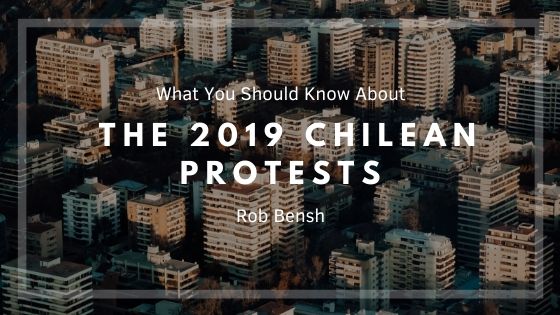Widely known as the one of the countries with the most stable government and economic growth in Latin America, Chile is currently undergoing significant social unrest. The state of the country is reminiscent of the dictatorship under General Augusto Pinochet that terminated in 1990.
Protests that began October 18, 2019 were prompted by President Sebastian Piñera’s announcement about a 4% increase on metro fares. Since then, hundreds of thousands of demonstrators took to the streets not only in objection of the metro fare hike, but also tensions about Chile’s economic inequality.
Despite the statistics on Chile’s successful economy, the decrease in poverty since the 1990s is only because of the top 10% skewing the data. The wealthy of Chile make 26.5 times more than the average citizen. The Organization for Economic Cooperation and Development says Chile has one of the most unequal economic distributions. In everywhere else but the wealthy regions, like Santiago’s inner city, the living costs have been rising, wages are low, there is inadequate healthcare policies, and public schools are overcrowded. The President’s metro fare increase was only a catalyst to turmoil that has been brewing for a while.
The protests became violent, with rioters causing fires and looting, leading to at least a dozen deaths and a plethora of hospitalizations. Over 10,000 security forces dispatched with full-riot gear and tear gas. There have been accounts of police mistreating protesters, torture, sexual assault, and other injuries. The unrest was declared a “state of emergency” on October 19. Police have arrested over 1,500 people and counting. Security is stationed everywhere, at metro stations, which are predominately closed with $300 million in damages, and the few supermarkets that remain open, and school has been canceled.
On October 22, President Piñera gave another announcement for reforms, but even increased pensions, increased minimum wage, and original metro fares were not enough to quell protests. Demonstrators feel that Piñera doesn’t understand their perspective. As a previous businessman with a $2.8 billion net worth, he doesn’t see the effects of the “economic growth” on impoverished shantytowns.
Chile was set to host two upcoming international events before the year ends: the Asia-Pacific Economic Cooperation group (APEC) and the United Nations climate conference (COP25). On October 30, President has canceled both to prioritize restoring the state of Chile.

